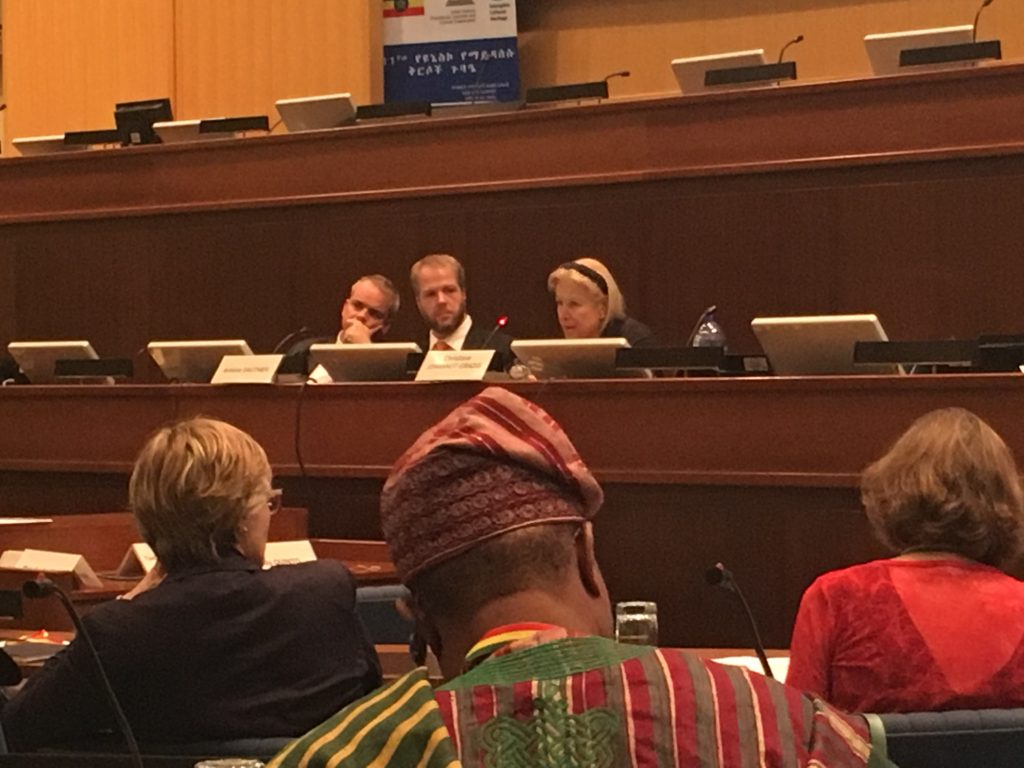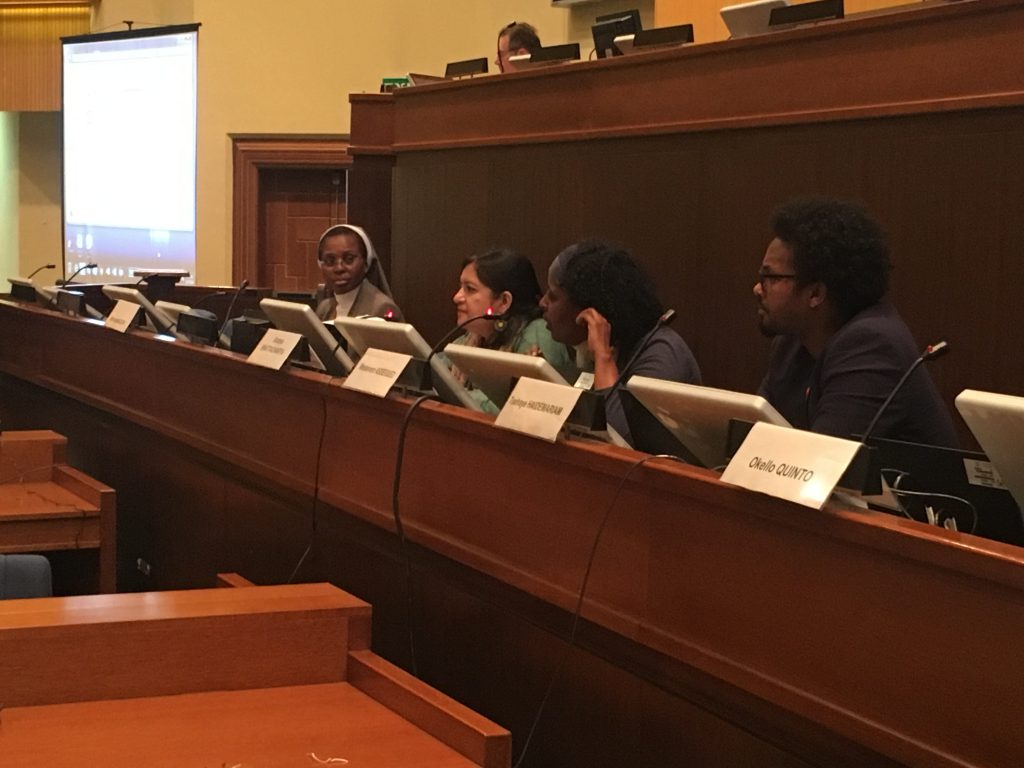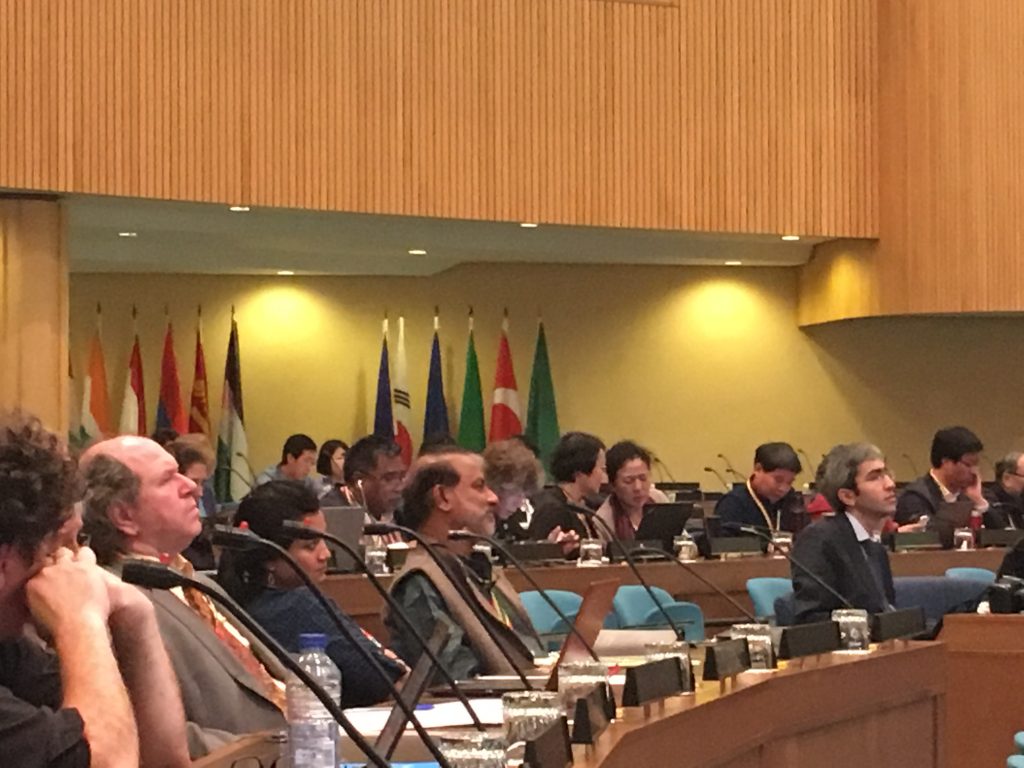 Report on 5th ICH NGO Forum SYMPOSIUM – Addis Ababa – 11.COM
Report on 5th ICH NGO Forum SYMPOSIUM – Addis Ababa – 11.COM
“Challenges for NGOs in the promotion of ICH values”
The theme of the 2016 Symposium at Addis Ababa in Ethiopia was “Challenges for NGOs in the promotion of ICH values”.
The program offered room for presentations by important speakers active both outside as well as fully within the Convention’s framework. NGO experiences from Ethiopia, Nigeria, Cameroon, and Uganda were shared.
Ananya Bhattacharya from Contact Base, India moderated the session.
The keynote speakers were:
 Marie Agatha Ozahb, representing International Council of Traditional Music (ICTM) and teaching at University of Port Harcourt, Nigeria.
Marie Agatha Ozahb, representing International Council of Traditional Music (ICTM) and teaching at University of Port Harcourt, Nigeria.
- Mekerem Assegued of Zoma Contemporary Art Center (ZCAC), Ethiopia. Marie Agatha Ozah spoke on Ritual, Music, and Dance: Expressions and the Preservation of African Indigenous Knowledge. Her presentation delved into whether it is through rituals and dance that African Indigenous Knowledge is produced, sustained, and passed through generations. Using her ethnographical studies, she examined the relationship between culture, society and gender negotiation, then discussed the threat of urbanization to the preservation of African Indigenous Knowledge. She shared case studies from Nigeria and Cameroon.
Meskerem Assegued in her presentation on Contemporary Vernacular Architecture and Art pointed out why revival and revitalization of intangible cultural heritage is important for strengthening identity, recognition and universal values. She gave example of how traditional knowledge can play a critical role in addressing health challenges. She shared how vernacular architecture can contribute to evolving solutions to the ever pressing matter of climate change and gave example of modern constructions using mud and straw. - Tsehaye Haidemariam, Choremundus Alumni Association (CAA) shared an interesting case study in his presentation on Protection of rights on county of origin, tourism, intellectual property and geographical identity of cultural products and services. He presented on the political, economic and ownership issues in the negotiation for the digitization of Ethiopian ICH film materials. At the request of Emperor Haile Selassie Hungarian folk music and dance researchers did elaborate documentation of Ethiopian folk traditions. 3000-meter film (45-50 hours), 1500 photographs and 10 hours of sound recordings document ICH elements which are not anymore in practice. Access to the documentation, ownership and cost of digitisation are some of the barriers in digitisation of this rich resource for promotion of ICH values and heritage education.
- Okello Quinto of Gulu Theatre Artists of Uganda shared on ‘Challenges affecting ICH promotion’. He explained how socio-cultural differences, religious and political conflicts, complications in accessing funding, policy gaps, loss of knowledge with demise of living heritages are affecting collection of data and hindering safeguarding. He gave examples of the Acholi community and explained how displacement has further added to the vicious cycle. Okello pointed out the need for access to funds for NGOs, ensuring accountability and role of cultural centers in dissemination of knowledge and strengthening diversity and harmony.
The 2ndpart of the symposium introduced the topic of the legal protection of ICH in the case of Armed Conflict, a subject in which expertise and research is being developed also amongst accredited NGOs. In the near future the topic of ICH in contexts of armed conflict, migration and emergencies will be further explored in the Forum’s initiatives.
 This second session was moderated by Antoine Gauthier from Conseil Québecois du Patrimoine Vivant of Canada. Dr Christiane Gradis-Johannot from Traditions pour Demain working in Europe and Latin America presented on Protecting ICH in the case of armed conflict
This second session was moderated by Antoine Gauthier from Conseil Québecois du Patrimoine Vivant of Canada. Dr Christiane Gradis-Johannot from Traditions pour Demain working in Europe and Latin America presented on Protecting ICH in the case of armed conflict
In war, individuals are vulnerable not only physically but also in terms of their cultural identity, and the obliteration of cultural heritage often becomes a central issue. This is particularly the case in armed conflicts with an ethnic, cultural or religious character. In some regions, cultural heritage consists more of monuments and objects; it is a “tangible” heritage, mostly protected by the law of armed conflict. in others, cultural heritage is expressed more in orality, gestures, music or other expressions involving individuals and their various supports, instruments and media. That cultural heritage is mainly “intangible”. However, in all situations, cultural heritage always has, to a variable degree, both a tangible and intangible dimension, and the applicable law in case of war can protect it, first by the law of armed conflict, but also, in certain situations, by other instruments such as the UNESCO Conventions on cultural heritage, and in particular by the 2003 Convention on the Safeguarding of Intangible Cultural Heritage, as well as different human rights treaties.
Overall, the success of the event came down to the interesting issues brought to light concerning the challenges faced around the world in promoting Intangible Cultural Heritage and the international conversation that it initiated.
Over the years the Forum has established a tradition to open the IGC sessions with the NGO Symposium. For the 2016 Symposium, over 80 participants of NGOs, communities, researchers, state parties and members of national UNESCO Commissions from over 32 countries attended.
https://www.ichngoforum.org/symposium-ich-ngo-forum-presenters-contributions/

